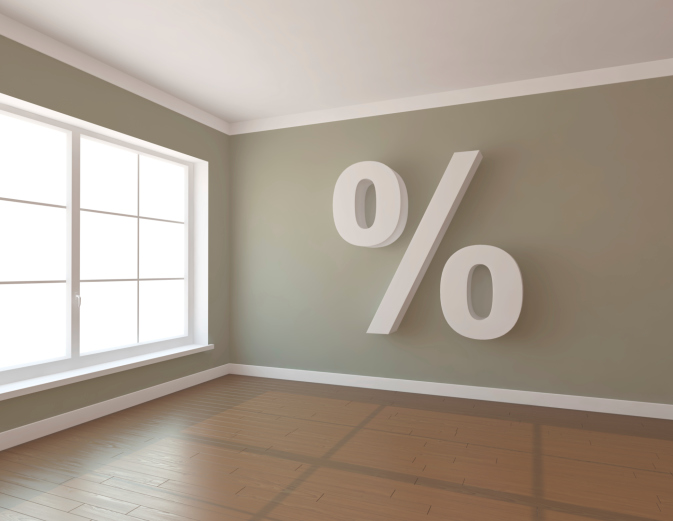What’s Ahead For Mortgage Rates This Week – February 22, 2021
 Last week’s economic reporting included readings from the National Association of Home Builders Housing Market Index, Commerce Department readings on housing starts and building permits issued along with data on sales of previously-owned homes. Weekly readings on mortgage rates and jobless claims were also released.
Last week’s economic reporting included readings from the National Association of Home Builders Housing Market Index, Commerce Department readings on housing starts and building permits issued along with data on sales of previously-owned homes. Weekly readings on mortgage rates and jobless claims were also released.
NAHB: Home Builders Index Rises One Point in February
Homebuilder confidence rose by one index point to 84 according to the National Association of Home Builders Housing Market Index. Readings over 50 in the Housing Market Index indicate that most homebuilders are confident about U.S. housing market conditions.
Component readings for the housing market index were mixed in February. Builder confidence in current market conditions for new single-family homes was unchanged with an index reading of 90; builder confidence in new home sales for the next six months fell by three points to a reading of 83. Builder confidence in buyer traffic in new single-family developments rose four points to an index reading of 72. Before the pandemic, readings for buyer traffic in new housing developments were typically below 50, but the pandemic has created more interest in new single-family homes as families moved from congested urban areas to suburban areas.
Builders cited ongoing concerns including rising materials costs and affordability issues for first-time and low-income homebuyers.
Housing Starts Lower in January as Building Permits Rise
The Commerce Department reported fewer housing starts in January based on 1.58 million starts reported on a seasonally-adjusted annual basis, 1.67 million starts were reported in December and analysts expected a pace of 1.68 million housing starts for January.
Building permits issued rose in January to a seasonally-adjusted annual pace of 1.88 million permits. Analysts expected a reading of 1.67 million permits issued based on 1.70 million permits issued in December. Winter weather conditions likely contributed to fewer housing starts, but builders took out more building permits in anticipation of improving weather and continuing demand for homes due to shortages of available homes for sale and higher demand due to the covid-19 pandemic.
The National Association of Realtors® reported 6.69 million sales of previously-owned homes on a seasonally adjusted annual basis as of January. Low inventories of available homes and high demand for single-family homes continue to drive home sales during the pandemic. Rising home prices caused by high demand and low inventories of homes for sale created affordability issues in suburban areas as well as traditionally high-priced metro areas.
Mortgage Rates Rise, Jobless Claims Mixed
Freddie Mac reported higher mortgage rates last week as the average rate for 30-year fixed-rate mortgages rose by eight basis points to 2.81 percent. Rates for 15-year fixed-rate mortgages averaged 2.21 percent and were two basis points higher. Rates for 5/1 adjustable rate mortgages averaged 2.77 percent and two basis points lower than the prior week.
Weekly jobless claims data was mixed last week with 861,000 initial jobless claims filed as compared to the prior week’s reading of 848,000 first-time jobless claims filed. Ongoing jobless claims fell to 4.49 million continuing claims as compared to the prior week’s reading of 4.56 million continuing jobless claims filed.
What’s Next
This week’s scheduled economic readings include S&P Case-Shiller Home Price Indices, the Federal Housing Finance Agency’s Home Price Index, and data on pending home sales. The University of Michigan will issue its reading on consumer sentiment and weekly readings on mortgage rates and jobless claims will also be published.

 When applying for a new home mortgage, many loan applicants initially consider applying for a 30-year fixed rate mortgage. This is perhaps the most common and traditional type of mortgage available. It allows you to enjoy the opportunity to pay for your home over the course of 30 years with equal payments every month. While this is one option, there are actually multiple choices available. For some applications, a variable rate mortgage may be more advantageous. If you are comparing the options between a fixed rate and a variable rate mortgage, you may consider a few points.
When applying for a new home mortgage, many loan applicants initially consider applying for a 30-year fixed rate mortgage. This is perhaps the most common and traditional type of mortgage available. It allows you to enjoy the opportunity to pay for your home over the course of 30 years with equal payments every month. While this is one option, there are actually multiple choices available. For some applications, a variable rate mortgage may be more advantageous. If you are comparing the options between a fixed rate and a variable rate mortgage, you may consider a few points. When you initially start shopping for a home mortgage, you may be drawn to advertisements for ultra-low interest rates. These may be rates that seem too good to be true, and you may gladly contact the lender or mortgage company to complete your loan application. However, the unfortunate truth is that all too often, mortgage applicants are unpleasantly surprised and even disheartened to learn that they do not qualify for the advertised interest rate. By learning more about the factors that influence your interest rate, you may be able to structure you loan in a more advantageous way.
When you initially start shopping for a home mortgage, you may be drawn to advertisements for ultra-low interest rates. These may be rates that seem too good to be true, and you may gladly contact the lender or mortgage company to complete your loan application. However, the unfortunate truth is that all too often, mortgage applicants are unpleasantly surprised and even disheartened to learn that they do not qualify for the advertised interest rate. By learning more about the factors that influence your interest rate, you may be able to structure you loan in a more advantageous way. For those who are getting ready to put their home on the market, they want to make sure they get as much money as possible for their home. This means making a positive first impression. There is never a second chance to make a first impression. Therefore, homeowners need to make sure they do everything possible to “wow” potential buyers at open houses and showings. What are a few of the top tips that homeowners should keep in mind?
For those who are getting ready to put their home on the market, they want to make sure they get as much money as possible for their home. This means making a positive first impression. There is never a second chance to make a first impression. Therefore, homeowners need to make sure they do everything possible to “wow” potential buyers at open houses and showings. What are a few of the top tips that homeowners should keep in mind?